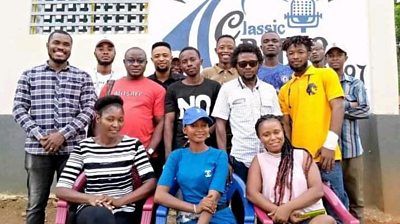
When Classic FM was set up two years ago, its founders saw a need in the market: for a media outlet that would promote the role of women in politics and in society.
“We are a private and commercial radio station that wanted to effect change and to be independent,” said station manager Richard Lahai Ngevao, who now oversees this radio and online media outlet from its base in Bo, Sierra Leone’s second-largest city, with a population of about 250,000.
But initially, the station struggled: with many of its young journalists straight out of university, they needed to learn how to write effectively for broadcast, as well as the basics of story-gathering and verifying information. Resources were scarce and often they could not afford transport to get to the stories they wanted to cover.
Shortly afterward, the network – which broadcasts on local radio, and shares recorded TV episodes on Facebook and YouTube - partnered with ���˿��� Media Action through its (Protecting Independent Media for Effective Development) consortium – a ground-breaking effort to examine what works in supporting public interest media, focused on Sierra Leone, Ethiopia and Bangladesh.
'The training was an eye-opener'
Part of the project is focused on capacity-building: training for journalists and media managers in everything from visual and digital storytelling, to editorial standards and investigative reporting skills, to how to strengthen business models with better newsroom management, marketing and funding approaches.
���˿��� Media Action led research into Classic's audiences, finding that while radio is the primary information source for audiences in Bo, power cuts also frequently disrupt services - making their Facebook presence important for those with access to social media on their phones.
Sessions on time management, how to find stories, and how to report them independently and impartially have also been important for his team, Richard said.
“For us, the training was an eye-opener. We have embraced that change and the knowledge. The richness of our content is because of the PRIMED project,” Richard said.
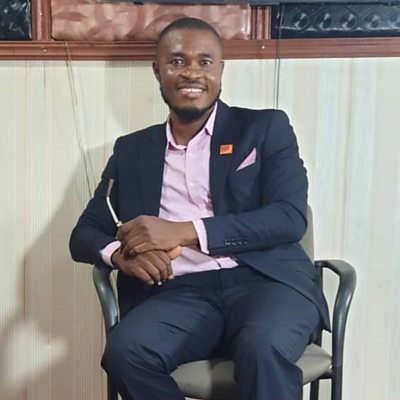
Classic is also learning how to better engage its nearly 10,000 followers on Facebook, and has worked through PRIMED to ensure greater gender equality in its editorial team and in its coverage of issues, to ensure they are including diverse voices and topics. Audience research has helped them identify which topics listeners want to hear about, and how best to engage them in their call-in segments.
Richard says the support is paying off: his Bo-based reporters are getting calls to help with story coverage from other stations in Freetown, and he believes they are better-placed to serve their audience with stories that matter. Audience research also suggests that their listeners and Facebook viewers have welcomed the new station as an accurate and generally impartial source of news and information.
A social media niche aimed at young people
“We wanted to find a niche for ourselves which is making use of social media, to allow younger people to access what we are doing at a faster rate,” he said. “This way they can watch us in their own time – this gives us an edge on other radio stations.
“One of the greatest challenges we face is independence. In Sierra Leone the media market is all about whose politics do you serve – the politicians try to buy over the radio stations … We see a lot of unbalanced information that is not ethical.
“But through the PRIMED project we are able to position ourselves properly. …We are making more space for women, for young people and for vulnerable people.
“With this project we are able to galvanise women, to come and have their say.”
'A different face to the media environment'
The station has tackled topics including access to water and electricity, access to education, teenage pregnancy, female genital mutilation, and violence against girls and women.
“Because we are not financially attached, we can cover these issues. But we find it difficult to cover all of the stories that we want to cover,” Richard continued.
“What we want is donors to support radio stations specifically, with funding and training and equipment. Then you will really start to see the results. We need to invest in professionalism and how radio stations operate.
“I’m really proud of the partnership and of my staff, because we are all here working together, all of us young people under 35, and we are working to make these changes together.
“If we could expand this partnership and extend it to more radio stations, I am convinced it would absolutely give a different face to the media environment in Sierra Leone.”
���˿��� Media Action is working with Classic Radio as part of the , a ground-breaking consortium of media support organisations examining how to best support independent media in fragile or low-resource contexts. The project is funded by the UK Foreign, Commonwealth and Development Office.
Our projects in Sierra Leone
-
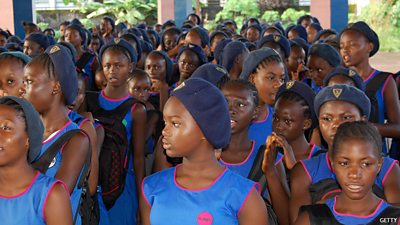
Empowering adolescent girls in Sierra Leone
There are 32,500 girls in Sierra Leone aged 13-17 who are not in school. Our project called Every Adolescent Girl Empowered and Resilient (EAGER) aims to aid in their transition to education, training or employment and inspire hope for their future. -
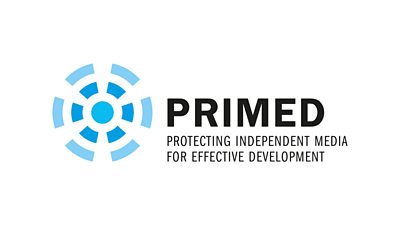
Protecting independent media for effective development
We are working with media support organisations and local partners to find out what works in supporting public interest media in Sierra Leone, Ethiopia and Bangladesh. -
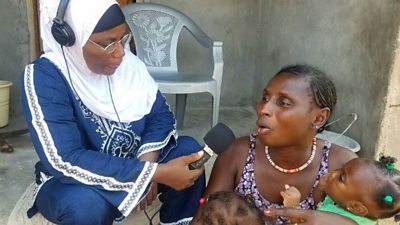
Protecting pregnant women and children from malaria in Sierra Leone
Using insight from our response to the Ebola outbreak we're building awareness about malaria for those most at risk, using radio, TV, social media and community outreach. -
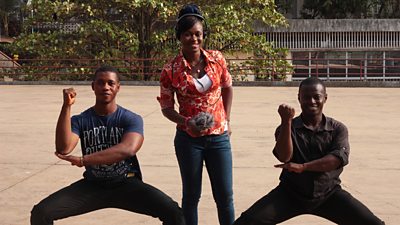
Using radio and television to inspire young people in Sierra Leone
Mi Stori (My Story) aims to inspire young people in Sierra Leone to be active, positive participants in their community through an interactive radio show and mini-documentaries championing positive role models.
Where we work
-
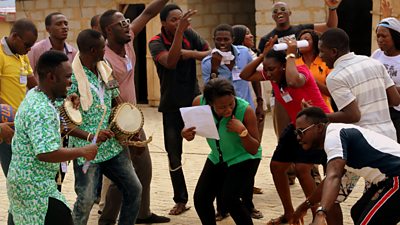
In Africa
Delve into our projects in Africa which range from media training to radio and TV programmes to tackle key development issues. Learn more here. -
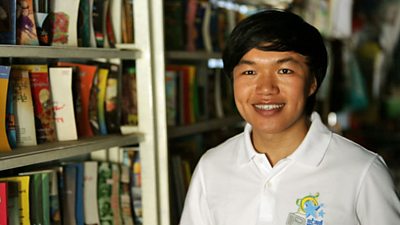
In Asia-Pacific
Explore the breadth of our projects in Asia which achieve impact through innovative mobile phone services, TV debate shows and traditional street theatre. -
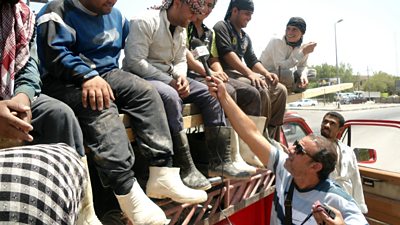
In Middle East & North Africa
Learn more about our longstanding media training projects and programmes that strengthen media development and provide a forum for trusted dialogue. -
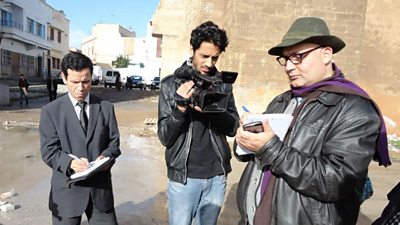
In Europe & Caucasus
Our projects increase trusted, inclusive and independent media programming to help people make sense of events in their countries and engage in dialogue – ultimately bringing societies together.